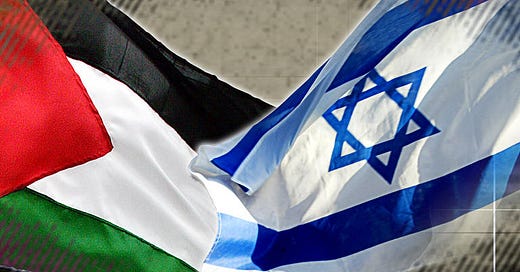In the heart of geopolitics, the Middle East consistently underscores its importance, with the Arab world standing prominently in global considerations.
The Middle East has always been the world’s region of consequentiality – there’s nothing inconsequential about the Arab world – nothing there can ever be considered trivial.
Each incident is a reminder of the weight of history and politics – amplified as evidenced by Hamas’s strike on Israel some ten days ago — a development that reverberated shockwaves internationally - putting the world on heightened alert.
Hamas's brazen assault looks to have exposed vulnerabilities in Israel's seemingly impregnable security - revealing a new audacity in the militant terrorist group’s approach to the conflict.
Israel's counter, though, was swift and, arguably, more alarming than any previous retaliation it has undertaken in the past when confronted with in discriminant attacks.
Late last week, Israel issued a 24-hour ultimatum to Palestinians in Gaza, pushing and elevating the narrative from mere conflict to an impending humanitarian catastrophe.
The escalation, more than ever, crystallizes the pressing need for a unified international and Arab response.
No longer is a ceasefire sufficient; now more than ever, what's required is a holistic resolution that dives deep into the heart of longstanding issues, that lays the foundation that ensures a hopeful horizon for Palestinians.
While the Israel-Palestinian narrative has been punctuated with a myriad of twists and turns, the latest surge in tensions provides a call for transformation.
Seventy-five years of ongoing turmoil and human misery suffered on both sides, should emphasise the time has come for world leaders and global influencers to rally behind peace - sidelining political partisanship to foreground the overarching imperative of human welfare.
The mounting toll of this new iteration of Israeli-Hamas conflict is both visceral and tangible.
Gaza's youngest inhabitants, growing up under the relentless darkness of conflict, become living testimonies to a relentless cycle of aggression and retaliation.
Economic ramifications, too, are evident, as vital funds are redirected from essential sectors, plunging the region into deeper despair.
But the ripple effects of the Israel-Hamas conflict resonate far beyond the borders of Isreal and Gaza.
A destabilised Middle East threatens global equilibrium—sparking refugee crisis to inciting radical ideologies.
Drawing parallels with events like September 11 underscores the need to mitigate tensions, not just for regional, but global stability and security.
While the spotlight is often cast over Israel and Hamas, it's the broader Palestinian population that seeks respite—a solution that ensures dignity, rights, and a brighter tomorrow.
However, the leadership dynamics, represented by Benjamin Netanyahu and Ismail Haniya, often present more hurdles and challenges than solutions.
Both their leadership have exacerbated divides and hindered the path to peace.
What's apparent is the need for fresh leadership that can navigate beyond historical animosities and breathe new life into peace initiatives.
With the urgency in Gaza and Israel palpable, complacency is no longer an option.
Arab nations, intertwined with Palestinians through shared cultural and religious ties have a critically important role to play.
But their influence must prioritise Palestinian welfare and peace over political gamesmanship.
The weight of responsibility isn't just a regional burden. The international community, too, needs to rally and forgo geopolitical games in favour of a cohesive strategy that ensures Israel's security while recognising Palestinian aspirations.
Future generations in Gaza and Israel, who will inherit the legacy of this conflict, are looking toward a horizon of hope - a reality where peace isn’t an exception but the norm.





Very well said and explained, unfortunately we are witnessing biggest human catastrophe